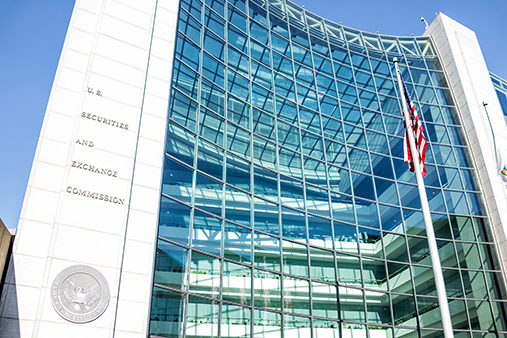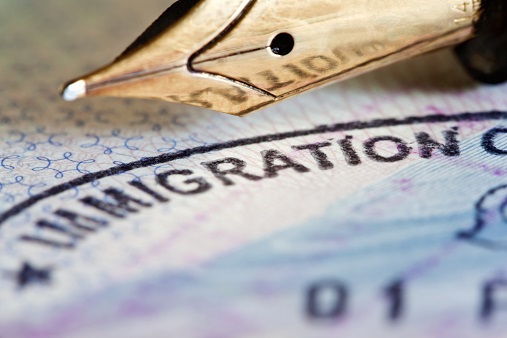Due to the reputational harm caused by trademark infringement, courts historically held that infringement led to the presumption of irreparable harm. This presumption afforded trademark owners the advantage of not having to produce evidence that the loss of goodwill would be irreparable in order to obtain an injunction. With recent Supreme Court and circuit court decisions, the presumption has gone away, leaving trademark owners with a much more difficult battle in staving off infringements.
In 2006, the Supreme Court changed the injunction landscape with its decision in eBay Inc. v. MercExchange, L.L.C, 547 U.S. 388 (2006). eBay rejected the automatic presumption of irreparable harm in patent infringement cases, holding that courts must still follow the traditional four-factor test for injunctive relief (those factors being irreparable harm, inadequacy of other remedies, the balance of hardship between the parties and the public interest). In 2008, the Supreme Court confirmed the exceptional nature of injunctive relief, holding that a plaintiff must prove not just a “possibility” of irreparable harm, but a more substantial “likelihood” of irreparable harm, Winter v. Natural Res. Def. Council, 555 U.S. 7 (2008).
After eBay and Winter, courts began to address the issue in the trademark context. In 2012, the Fifth Circuit, while applying the four factor test and citing to eBay, held that once a likelihood of confusion is shown in an infringement case, the irreparable injury is still presumed, Abraham v. Alpha Chi Omega, 708 F.3d 614, 627 (5th Cir.), cert. denied, 134 S. Ct. 88 (2013).
In 2013, the Ninth Circuit created a split among the circuits, Herb Reed Enterprises, LLC v. Florida Entertainment Management, Inc., 736 F.3d 1239 (9th Cir. 2013). In Herb Reed, the court relied on eBay and the Lanham Act, which requires that injunctions be granted in accordance with “principles of equity,” to hold that the presumption of irreparable harm no longer arises in trademark cases. The Third Circuit has also firmly pronounced that the rationale of eBay requires that the traditional presumption of irreparable harm in Lanham Act cases no longer apply, Ferring Pharm., Inc. v. Watson Pharm., Inc., 765 F.3d 205 (3rd Cir. 2014). Both the Eleventh and Second Circuits have suggested that they too will no longer recognize a presumption of irreparable harm. North American Medical Corp. v. Axiom Worldwide, Inc., 522 F.3d 1211 (11th Cir. 2008); Salinger v. Colting, 607 F.3d 68 (2nd Cir. 2010).
Injunctive relief is normally the main focus of trademark plaintiffs. This fact, and the trashing of the presumption of irreparable harm, has already led to some bizarre results. In one case, a jury made a finding of infringement, but awarded no damages to the trademark owner. The court then, following Herb Reed, denied the permanent injunction, thereby allowing what the jury had found to be infringing activity to continue unabated, Active Sports Lifestyle USA, LLC v. Old Navy, LLC, Case No. SACV 12-572 JVS (C.D. Cal. March 21, 2014).
Given the current trend, trademark owners seeking injunctive relief should keep two important factors in mind:
- Whether or not evidence of irreparable harm is necessary may be very dependent upon the court hearing the lawsuit; and
- regardless of the court, providing evidence of irreparable harm may be a wise course of action in light of recent decisions.
Gone are the days of presumed irreparable harm when your trademarks are in the hands of infringers. Any plaintiff seeking an injunction must now go the extra mile of putting on evidence of the unquantifiable irreparable harm they face, or risk a court finding in their favor on infringement, but refusing to stop the infringing activities.
For more information, contact the Barnes & Thornburg attorney with whom you work or a member of the firm’s Intellectual Property Law Department in the following offices: Atlanta (404-846-1693), Chicago (312-357-1313), Columbus (614-628-0096), Delaware (302-300-3434) Elkhart (574-293-0681), Fort Wayne (260-423-9440), Grand Rapids (616-742-3930), Indianapolis (317-236-1313), Los Angeles (310-284-3880), Minneapolis (612-333-2111), South Bend (574-233-1171), Washington, D.C. (202-289-1313).
You can also visit us online at www.btlaw.com.
©2014 Barnes & Thornburg LLP. All Rights Reserved. This page, and all information on it, is proprietary and the property of Barnes & Thornburg LLP. It may not be reproduced, in any form, without the express written consent of Barnes & Thornburg LLP.
This Barnes & Thornburg LLP publication should not be construed as legal advice or legal opinion on any specific facts or circumstances. The contents are intended for general informational purposes only, and you are urged to consult your own lawyer on any specific legal questions you may have concerning your situation.









/Passle/6488d4630e7e25c9ac9f834a/SearchServiceImages/2024-08-22-21-09-42-814-66c7a9167c25ae3ecd362787.jpg)

/Passle/6488d4630e7e25c9ac9f834a/SearchServiceImages/2024-08-21-16-53-04-583-66c61b702c11c56cda8987a4.jpg)
